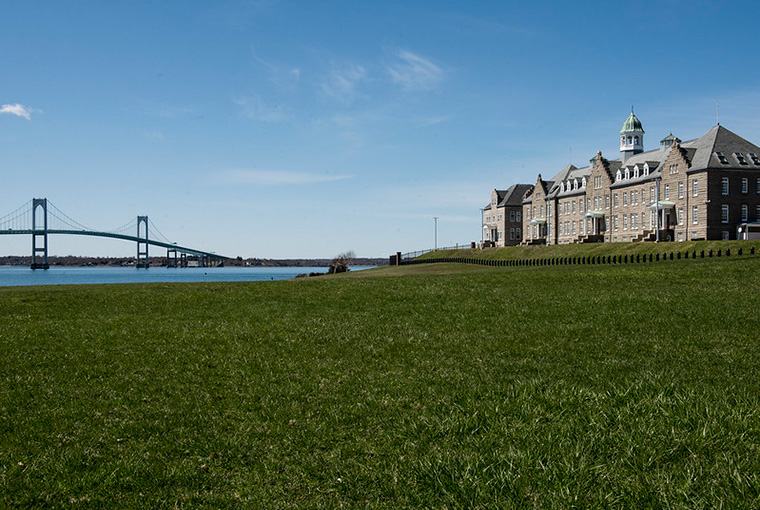NWC Visiting Research Scholars Examine Intersection of Defense, Humanitarian Response

The visiting research scholars’ program at the U.S. Naval War College (NWC) provides opportunities for departments throughout the college to draw from renowned academic experts to expand the college’s initiatives. Regarded scholars in fields ranging from history to national security have lent their expertise in the past. The College of Maritime Operational Warfare (CMOW) has been the most recent beneficiary of the program with the addition of two visiting research scholars contributing to its Humanitarian Response Program (HRP).
NWC’s HRP helps to improve the U.S. Navy’s and international militaries’ effectiveness in conducting humanitarian assistance and disaster response operations through innovative education, research and simulation activities. HRP partners with leading universities, humanitarian organizations and various agencies to advance civilian-military coordination during humanitarian response in complex emergencies and natural disasters.
HRP benefits this academic year from the addition of Professor Austin Becker as a visiting research scholar. Becker is on sabbatical from the University of Rhode Island (URI) where he is associate professor of Marine Affairs.
“The position will establish the basis for future collaborations between URI and the NWC,” said Becker. “It will also contribute to a military readiness review being conducted with funding from Department of Defense’s Office of Economic Adjustment and in collaboration between Naval Station Newport, URI and the three surrounding municipalities (Newport, Middletown and Portsmouth, Rhode Island).”
Becker’s presence at NWC will prioritize and transform the relationship that NWC has with the Aquidneck Island communities related to climate hazards and resilience. This visiting research scholar partners two major institutions in Rhode Island, NWC and URI, to use the topic of climate resilience in Aquidneck Island as a case study to explore innovative approaches, methods, policies and concepts for application to the U.S. Navy’s work supporting domestic and international needs in coastal disasters.
An additional visiting research scholar joining HRP this year is Professor Mark Brennan, who is currently a postdoctoral associate at MIT working on a Federal Emergency Management Agency-sponsored project and who is also a research fellow with the Boston Emergency Medical Service. Brennan’s academic work will establish the basis for humanitarian logistics research and action at NWC. His work will support humanitarian organization and national agencies’ planning and operations to deliver relief in conflicts and disasters.
“Disasters and conflicts limit people’s access to essential goods and services—food, shelter and medical care,” said Brennan, “Ensuring that people can continue to access food, shelter and medical care is first a matter of politics and then, with good policy in place, is a challenging logistics problem. In my research agenda at the college, I analyze the policy and operations that, together, allow shops, nonprofits and public agencies to respond to people’s most basic needs in difficult environments. I’m looking forward to working with faculty and students from across the college to show how humanitarian organizations, national and international agencies, and, when requested, militaries can deliver goods and services in appropriate ways to those affected by disasters and conflict.”
Brennan’s projects include close partnerships with U.N. agencies and national governments in Sub-Saharan Africa on the front lines of relief planning and operations. It will contribute to the development of concepts that apply to the Navy’s work supporting domestic and international needs in disasters relief.
“The Humanitarian Response Program is honored to have Professor Becker and Professor Brennan on our team to help dramatically improve our interdisciplinary approaches to investigating some of the most pressing challenges facing humanity,” said Professor David Polatty, director of HRP. “Within the humanitarian response sector, climate change and humanitarian logistics are two critical areas that we simply don't have the expertise to address within our own faculty, and the opportunity to have these two leading experts working with us is both exciting and inspiring.”
Established in 1884, U.S. Naval War College is the oldest institution of its kind in the world. More than 50,000 students have graduated since its first class of nine students in 1885 and about 300 of today’s active duty admirals, generals and senior executive service leaders are alumni.
Visiting research scholars are unpaid affiliations designed to facilitate collaboration and cooperation among scholars with mutual interests.
